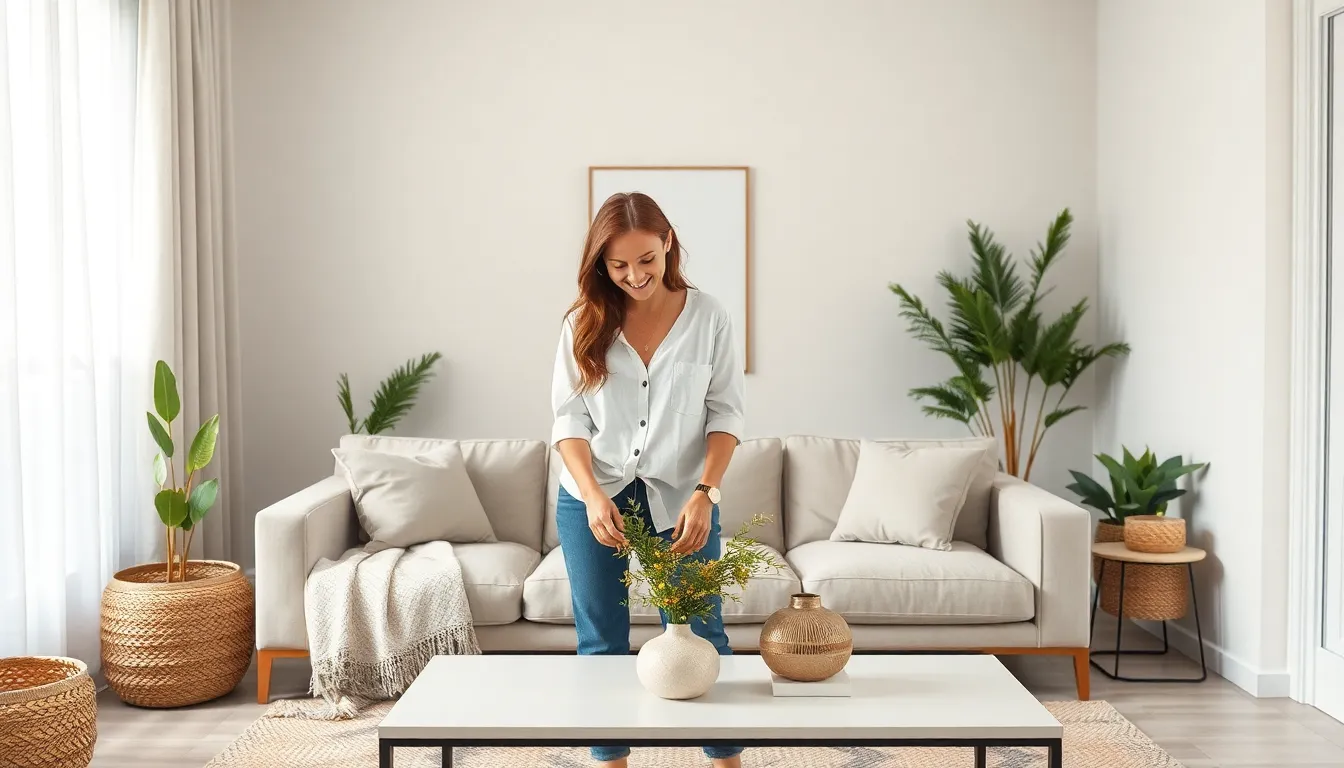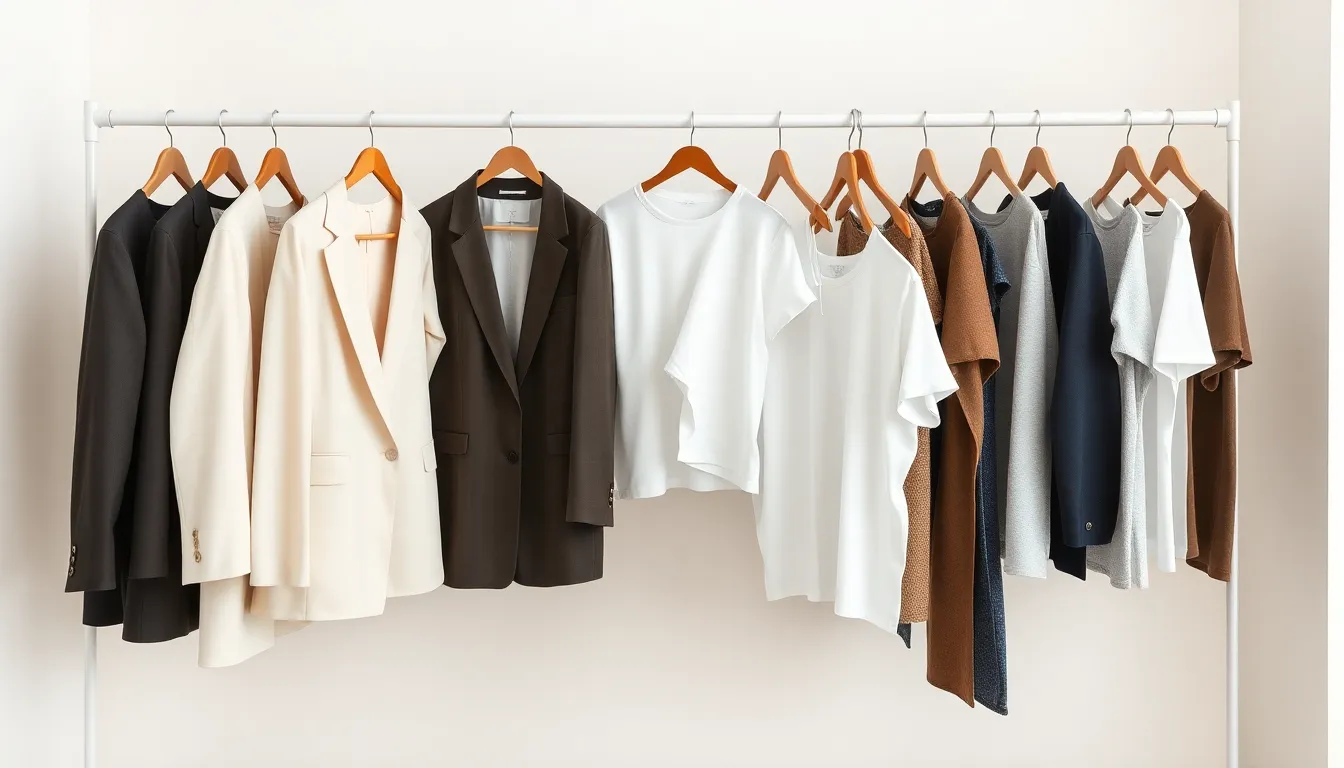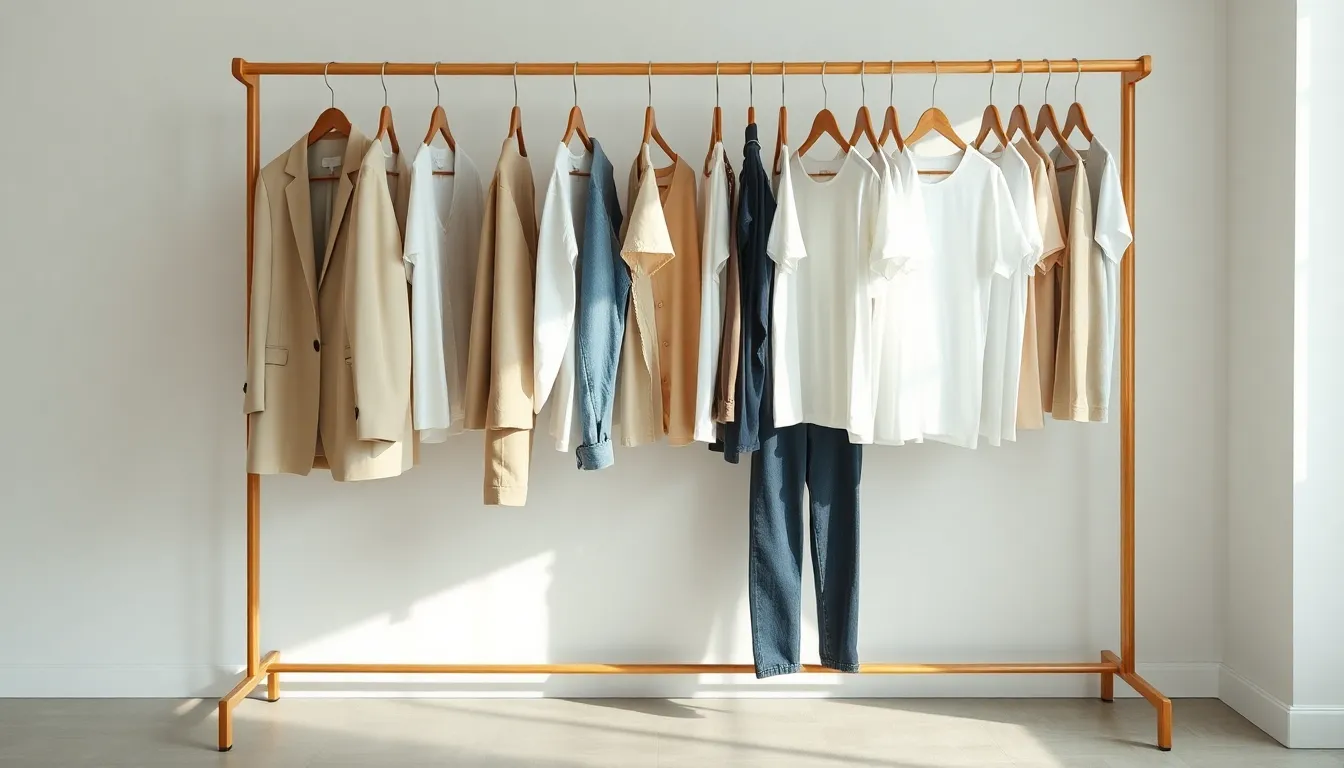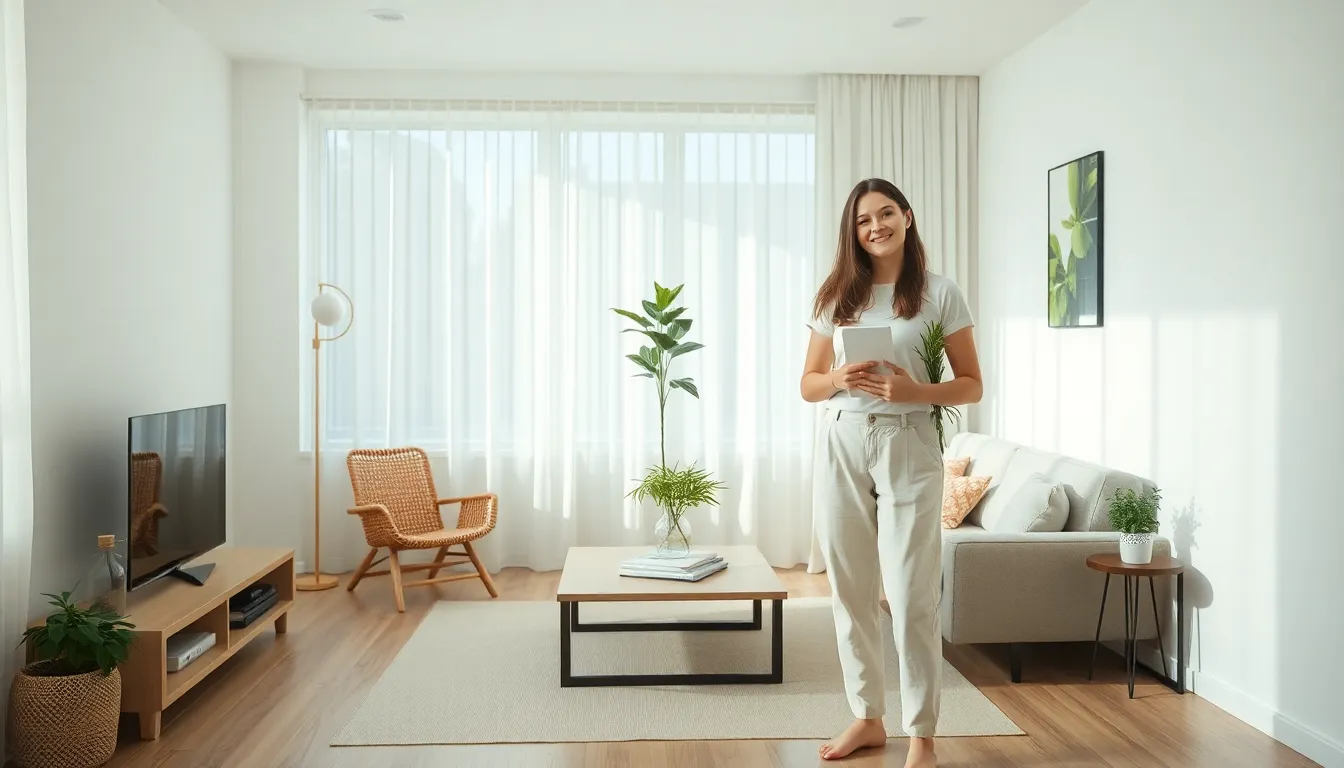In a world overflowing with stuff, embracing minimalism can feel like a breath of fresh air—or maybe just a much-needed deep sigh. Imagine a life where clutter doesn’t rule your space or your sanity. Minimalist essentials are the secret weapons for anyone seeking simplicity without sacrificing style.
Table of Contents
ToggleUnderstanding Minimalist Essentials
Minimalist essentials serve as a foundational approach to achieving simplicity and elegance in life. These items prioritize functionality and style while reducing clutter.
Definition of Minimalism
Minimalism embodies a lifestyle focused on simplicity and intentionality. It encourages individuals to eliminate excess possessions and distractions. This philosophy values quality over quantity, aiming to create a space that fosters peace and clarity. By concentrating on what truly matters, minimalism promotes a fulfilling life free from material overwhelm. Through this lens, it becomes easier to appreciate the essential aspects of everyday living, leading to more meaningful experiences.
The Philosophy Behind Minimalism
The philosophy of minimalism emphasizes mindfulness and intentional living. Practicing minimalism encourages individuals to evaluate their needs and desires critically. Choices revolve around sustainability and conscious consumption, advocating for responsible purchasing habits. This approach cultivates an appreciation for everyday moments and fosters deeper connections with people and experiences. By embracing minimalism, one can find joy in simplicity while reducing stress and enhancing overall well-being. It supports creating environments that reflect personal values and aspirations, resulting in a more authentic life.
Key Minimalist Essentials for Everyday Life



Minimalist essentials simplify daily routines while enhancing functionality and aesthetics. Prioritizing these items can lead to a more organized lifestyle.
Clothing Essentials
Clothing basics form the foundation of a minimalist wardrobe. Neutral colors blend easily, allowing for versatile outfits. Quality fabrics enhance longevity, making less frequent replacements necessary. Capsule collections often include essential pieces like a tailored blazer, well-fitted jeans, and classic white t-shirts. Footwear options should embrace comfort and style, featuring versatile shoes that suit various occasions, such as loafers or minimalist sneakers.
Home Essentials
Home essentials create an uncluttered sanctuary. Key furniture items like a multifunctional sofa and a sturdy dining table contribute to both comfort and utility. Storage solutions should prioritize simplicity, utilizing boxes that blend with the decor while keeping items organized. Minimalist decor often incorporates natural elements, such as plants or woven baskets to enhance the ambiance. Basic kitchenware, like a quality knife set and a multifunctional pan, supports efficient cooking while minimizing clutter.
Benefits of Adopting Minimalist Essentials
Adopting minimalist essentials leads to various benefits that enhance daily life.
Reduced Stress and Clutter
Reduced belongings create a calming environment. Less clutter means fewer distractions, which fosters tranquility. An uncluttered space promotes mental clarity, allowing focus on meaningful tasks. Studies show that individuals with organized surroundings experience lower levels of stress. As clutter decreases, anxiety levels often diminish, leading to a more serene lifestyle. Minimalism encourages intentional living, emphasizing the importance of keeping only what holds value. Prioritizing essential items simplifies decision-making, further reducing overwhelming feelings.
Improved Focus and Productivity
Improved focus stems from a simplified environment. By minimizing distractions, individuals can dedicate their attention to important tasks. Researchers indicate that organized spaces contribute to heightened productivity levels. Prioritizing essential tools enhances efficiency, allowing for streamlined workflows. Individuals adopting a minimalist mindset often report increased motivation. Additionally, fewer possessions lead to easier maintenance, freeing up time for more impactful activities. As a result, clarity in goals becomes more achievable, enhancing overall effectiveness. Embracing minimalism cultivates an atmosphere that inspires creativity and focus.
Tips for Transitioning to Minimalist Essentials
Transitioning to minimalist essentials requires thoughtful planning and execution. Focusing on simplicity aids in embracing this lifestyle.
Start Small
Begin with one area in your home. Choose a drawer, a closet, or a single room to declutter first. As progress unfolds, motivation will grow. Removing non-essential items creates space, both physically and mentally. When it feels manageable, expand to other areas. Reducing possessions gradually leads to a more organized environment without feeling overwhelmed. Embracing this incremental approach reinforces long-term commitment.
Evaluate Your Needs
Assessing personal needs serves as a guiding principle in minimalism. Identify essential items that truly add value to life. Each person’s essentials may vary, so reflecting on personal lifestyle aids in making informed decisions. Consider daily routines and activities to determine what items improve overall functionality. Prioritize quality over quantity when selecting belongings. This evaluation fosters intentional living, aligning possessions with genuine needs and desires while reducing unnecessary clutter. Taking time to evaluate ensures a personalized minimalist approach.
Embracing minimalist essentials transforms daily life into a more intentional and fulfilling experience. By focusing on quality over quantity individuals can create spaces that reflect their values while reducing distractions. This shift not only enhances productivity but also fosters a sense of peace and clarity.
Transitioning to a minimalist lifestyle is a journey that encourages thoughtful decisions about what truly matters. As individuals declutter and simplify their environments they open themselves up to deeper connections and greater creativity. Ultimately minimalism isn’t just about owning less; it’s about living more meaningfully.







